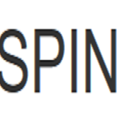Recent years have seen significant advances in quantum/quantum-inspired technologies capable of approximately searching for the ground state of Ising spin Hamiltonians. The promise of leveraging such technologies to accelerate the solution of difficult optimization problems has spurred an increased interest in exploring methods to integrate Ising problems as part of their solution process, with existing approaches ranging from direct transcription to hybrid quantum-classical approaches rooted in existing optimization algorithms. While it is widely acknowledged that quantum computers should augment classical computers, rather than replace them entirely, comparatively little attention has been directed toward deriving analytical characterizations of their interactions. In this paper, we present a formal analysis of hybrid algorithms in the context of solving mixed-binary quadratic programs (MBQP) via Ising solvers. By leveraging an existing completely positive reformulation of MBQPs, as well as a new strong-duality result, we show the exactness of the dual problem over the cone of copositive matrices, thus allowing the resulting reformulation to inherit the straightforward analysis of convex optimization. We propose to solve this reformulation with a hybrid quantum-classical cutting-plane algorithm. Using existing complexity results for convex cutting-plane algorithms, we deduce that the classical portion of this hybrid framework is guaranteed to be polynomial time. This suggests that when applied to NP-hard problems, the complexity of the solution is shifted onto the subroutine handled by the Ising solver.
翻译:暂无翻译



